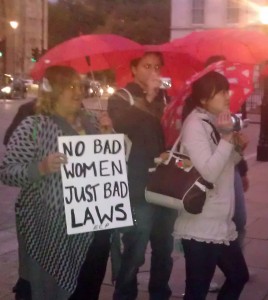The following is drawn from London and the Kingdom: A History Derived Mainly From the Archives at Guildhall by Reginald R Sharpe, DCL, in Three Volumes, printed by order of the Corporation of Under the Direction of the Library Commmittee, London, Longmans, 1894.
The author explains in the preface that authors have rarely touched on the City’s politics, yet “its geographical position combined with the innate courage and enterprise of its citizens served to give it no small political power and no insignificant place in the history of the Kingdom” (p. iv). He explains tha impetus as the popular tradition making this the 700th anniversary of the Mayoralty. (I suspect the existence of the Royal Commission on the Amalgamation of the City and County of London, which also reported in 1894 had something to do with it.)
Going back, right back… “the City has never been subject to any over-lord except the king. It never formed a protion of the king’s demesne (dominium), but has ever been held by its burgesses as tenants in capite by burgage (free socage) tenure. Other towns…were subject to overlords, ecclesiastical or lay, in the person of archbishop, abbot, baron or peer of the realm, who kept in their own hands many of the privileges which in the more favoured City of London were enjoyed by the municipal authorities.” (p. 3)
Athelstan ( king 924 or 925 to 939) gave encouragement to commercial enterprise “by enacting that any merchant who undertook successfully three voyages across the seas at his own cost (if not in his own vessel) should rank as a thane”. (p. 16)
William the Conqueror granted London a charter “by which he clearly declared his purpose not to reduce the citizens to a state of dependant vassalage, but to establish them in all the rights and privileges they had hitherto enjoyed. … William, King, greets William, Bishop, and Gosfregdh, Portreeve, and all the burgesses within London, French and English, friendly. And I give you to know that I will that ye be all those laws worky they ye were in King Eadward’s day. And I will that every child be his father’s heir after his father’s day and I will not suffer any man offer you any wrong. God keep you.” (p. 34)
Henry I granted a further charter “the citizens were henceforth to be allowed to hold Middlesex to farm at a rent of £300 a year, and to appoint from among themselves whom they would to be sheriff over it; they were further to be allowed to appoint their own justiciar to hold pleases of the crown, and no other justiciar should exercise authority over them; they were not to be forced to please without the city’s walls; they were to be exempt from scot and low and of all payments with respect to Danegelt and murder; they were to be allowed to purge themselves after the English fashion of making oath and not after the Norman fasion by wager of battle; their goods were to be free of all manner of customs, toll, passage and lestage; their husting court might sit once a week; and lastly, they might resort to ‘withernam’ or reprisal in cases where their goods were unlawfully seized.” (p. 41)
A lot of this was lost for a time under Stephen and Matilda, Henry II and Richard, particularly the shrievalty “when it was restored to the citizens (AD1199) by John’s second charter, the office of sheriff of London had lost much of its importance owing to the introduction of the communal system of municipal government under a mayor.” (p. 58) The origins of this are unclear, but may go back to Stephen’s reign. Certainly John and the barons after deposing Longchamp “granted to the citizens ‘their commune’, swearing to preserve untouched the dignities of the city during the king’s pleasure. (p. 63-4)
The first mention of the mayor is in 1202, “when John attempted to suppress the guild of weavers ‘at the request of our mayor and citizens of London’. A few years later when John was ready to do anything and everything to avoid signing the Great Charter which the barons were forcing on him, he made a bid for the favour of the citizens by granting them the right to elect annually a mayor, and thus their autonomy was rendered complete.” (p. 68)
The city rising of 1196: “The pressure of taxation weighed heavily on the poor, and occasioned a rising in the city under the leadership of William Fitz-Osbert. They cry was that the rich were spared whilst the poor were called upone to pay everything. [Sound familiar??!] … it is certain he had a large following. When Hubert Walter, the justiciar, sent to arrest him… he took refuge in the church of St Mary-le-Bow. Thither he was followed by the king’s officers… who with the aid of fire and faggot soon compelled him to surrender. On his way to the Tower he was struck at and wounded by one whose father (it was said) he had formerly killed; but this may or may not be the whole truth. A few days later he and a number of his associates were hanged.” (p. 71)
In 1200 first mention of alernmen… “the establishment of a court of aldermen preceded that of the common council”. (p. 72)
Edward III’s charter to the city of March 6, 1327, “which has been held to be of the force of an Act of Parliament,… appointed the mayor one of the justices of the gaol delivery of Newgate as well as the king’s escheator of felon’s goods within the city; it gave the citizens the right of devising real estate within the city; it restored to them all the privileges they had enjoyed before the memorable Iter of the last reign; and granted to them a monopoly oof markets within a ciircuit of seven miles of the city.” (p. 161)
read more »



 About
About